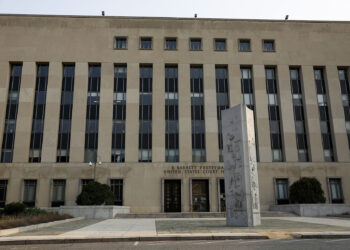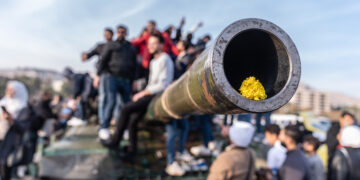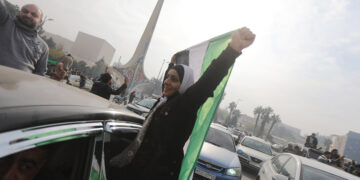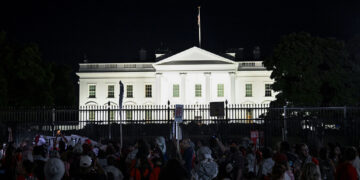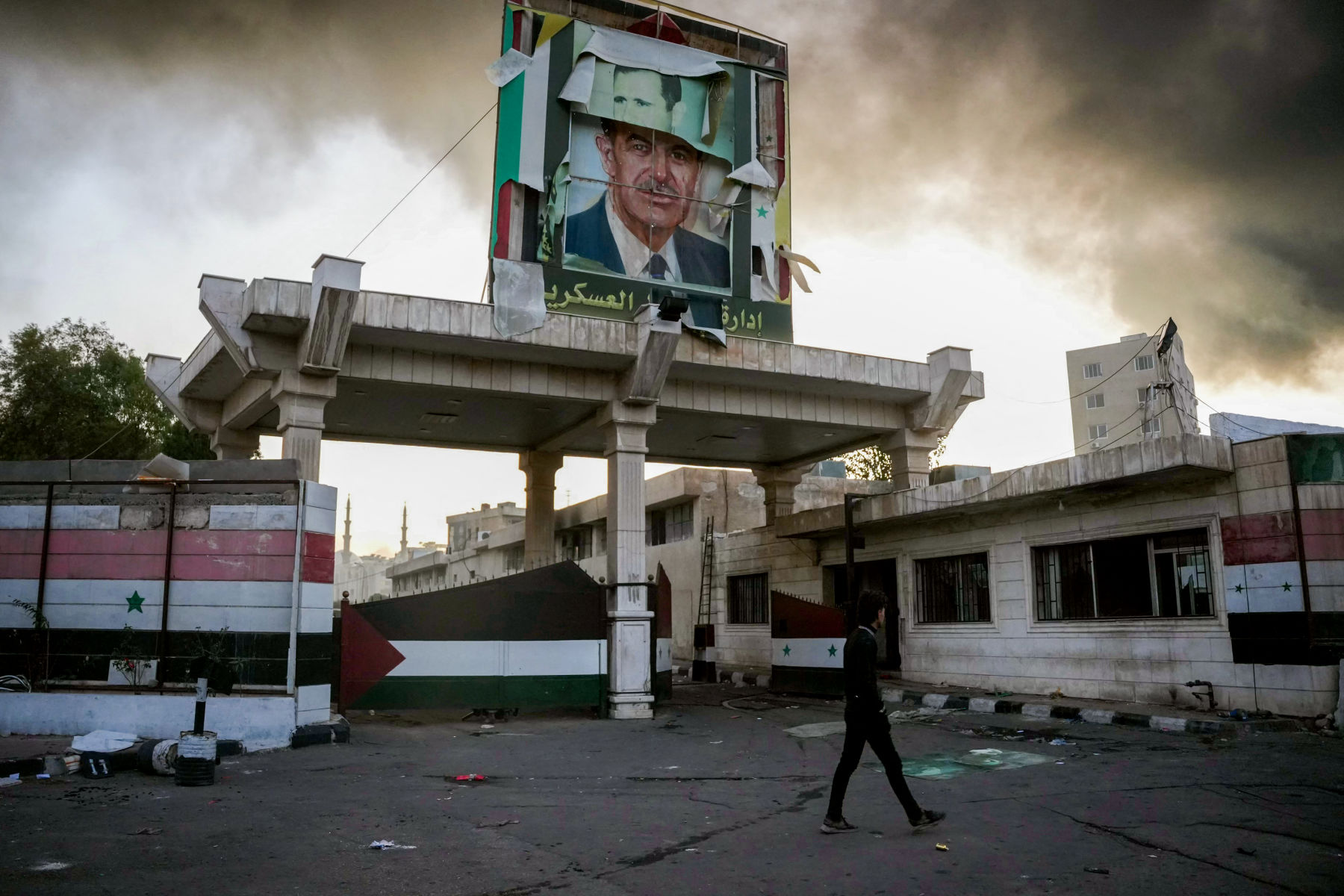عربی
April 6, 2021
Dear Mr. President:
We thank you for taking critical first steps toward peace and food security in Yemen, including an announced end to offensive U.S. military participation in Saudi- and Emirati-led coalition actions; a review of weapons sales to Saudi Arabia and the United Arab Emirates for use in their six-year air war in Yemen; and a revocation of President Trump's terrorism designations against the Houthis, with the express purpose of averting a hunger crisis.
In light of an explosive March 10th news report, "CNN investigation finds the U.S.-backed Saudi blockade is leading to deadly fuel & food shortages in Yemen, where hospitals are full of starving children," we urge you now to use U.S. leverage with the Saudi regime to demand an immediate and unconditional end to its blockade on Yemen, which threatens the lives of 16 million malnourished Yemenis living on the edge of famine.
CNN found that Yemen's major port of Hodeidah, controlled by Yemen's Houthi rebels, "is now a ghost town," as "hundreds of food aid trucks sit parked in a line stretching for miles," without fuel, as their cargo spoils. "Saudi warships have not allowed any oil tankers to berth at Hodeidah since the start of the year," CNN reporter Nima Elbagir observed, citing the World Food Programme, which documented that over a dozen ships carrying 350,000 metric tons of commercial fuel have been prevented from entering Yemen for over two months.
We are deeply concerned that prior to the CNN report, no U.S. official in the new administration had explicitly publicly acknowledged the six-year-old, Saudi-imposed blockade—much less criticized it. U.S. special envoy for Yemen, Tim Lenderking, declined to adequately respond to Elbagir's on-the-ground reporting and direct questions, referring to Yemen's hunger crisis simply as "complex," while denying evidence of the blockade shown in CNN's report, and, per Elbagir's account, falsely claiming that "food continues to flow through Hodeidah unimpeded." Elbagir concluded: "How is [peace] possible when you are not acknowledging the full impact of that U.S.-backed Saudi embargo on the people of Yemen?"
According to the UN, 400,000 children under the age of 5 could perish from hunger this year without urgent action. For years, the Saudi blockade has been a leading driver of Yemen's humanitarian catastrophe. The recent fuel shortages triggered by the blockade are quickly accelerating major reductions in access to affordable food, clean water, electricity, and basic movement across Yemen. The blockade also threatens to shut down, within weeks, the hospitals reliant on power generators to tend to victims of famine, while making even emergency travel to hospitals prohibitively expensive for Yemeni families, condemning untold numbers of children to certain death at home.
On March 11th, addressing the UN Security Council, World Food Programme Executive Director David Beasley corroborated CNN's reporting on the Saudi fuel blockade, noting "most hospitals only have electricity in their intensive care units because fuel reserves are so low. I know this firsthand because I walked in the hospital and the lights were off." He pleaded: "It is hell on earth in many places in Yemen right now," and concluded, "That blockade must be lifted, as a humanitarian act. Otherwise, millions more will spiral into crisis." In light of the Houthis' longstanding obstructionism of humanitarian assistance, Beasley's recent assessment that "we've turned a corner with the Houthis…in terms of cooperation, collaboration" is a promising sign that unilaterally ending the blockade, paired with increased financial assistance, can save millions of innocent lives.
Brookings Senior Fellow Bruce Riedel describes the ongoing Saudi blockade as "an offensive military operation that kills civilians." Given the continued imposition of the blockade, the administration's portrayal of Saudi Arabia as "committed and eager to find a solution to the conflict" is troubling. Lenderking's argument to CNN's Elbagir that the Saudis "are ready to sit down to negotiate an end to the conflict" with the Houthis, "during which access to ports and other issues could be addressed and resolved," could mean tens of thousands more people may die before negotiations over the blockade even begin.
We strongly support a comprehensive political settlement that addresses the conflict's myriad issues, including a nationwide ceasefire, currency stabilization, and payment of government salaries. But a U.S. effort to wield its unique political leverage over Saudi Arabia to demand the blockade's end must occur independently of negotiations between the warring parties. This is particularly necessary in light of the highly uncertain outcome of peace talks, as Saudi warplanes have freshly launched repeated bombings of the capital city of Sana'a and the Houthis have launched an offensive on the city of Marib. Riedel warns that "linking lifting the blockade to a ceasefire is a recipe for prolonging the suffering of the Yemeni people. The two issues need to be decoupled."
This moral imperative requires the United States to pressure Saudi Arabia to lift this blockade immediately, unilaterally, and comprehensively. This means ending the Saudi naval blockade and allowing humanitarian and commercial imports to freely enter into Yemen; entrusting security oversight to the United Nations Verification and Inspection Mechanism for Yemen (UNVIM); fully permitting commercial and medical flights in and out of Sana'a airport; and reopening land crossings to importers, exporters and civilian traffic.
Thank you again for your previous actions to end U.S. complicity in the war in Yemen and ease the country's humanitarian crisis. We now ask you to acknowledge the severity of the Saudi blockade; call for Saudi Arabia to lift it immediately; and terminate any U.S. political, military, operational or diplomatic support for the blockade that may exist in order for food, fuel and medicine to reach millions of Yemenis in desperate need.
Thank you for your consideration of this important matter.
Sincerely,
Organizations
- Action Corps
- American Friends Service Committee
- American Muslim Empowerment Network (AMEN)
- Antiwar.com
- Arabian Rights Watch Association (ARWA)
- Avaaz
- Bread for the World
- Campaign for Peace, Disarmament and Common Security
- Center for Economic Policy and Research (CEPR)
- Center for International Policy
- Charity & Security Network
- Church of the Brethren, Office of Peacebuilding and Policy
- Church World Service
- Churches for Middle East Peace
- Committee in Solidarity with the People of El Salvador (CISPES)
- CODEPINK
- Committee for Responsible Foreign Policy
- Common Defense
- Council on American-Islamic Relations (CAIR)
- Demand Progress Education Fund
- Democracy for the Arab World Now (DAWN)
- EIHR: The Educators' Institute for Human Rights
- Environmentalists Against War
- Evangelical Lutheran Church in America
- Foreign Policy for America
- Freedom Forward
- Friends Committee on National Legislation (FCNL)
- Global Ministries of the Christian Church (Disciples of Christ)
- Health Alliance international
- Historians for Peace and Democracy
- ICNA Council for Social Justice
- Indivisible
- Interfaith Community Sanctuary
- Just Foreign Policy
- Justice Democrats
- Justice Is Global
- MADRE
- MoveOn
- National Council of Churches
- National Iranian American Council
- Neighbors for Peace
- Pax Christi USA
- +Peace
- Peace Action
- Peace Direct
- Presbyterian Church (USA) Office of Public Witness
- Progressive Democrats of America
- Public Citizen
- Quincy Institute for Responsible Statecraft
- Raytheon Anti-war Campaign
- Refugees International
- Rethinking Foreign Policy
- Revolutionary Love Project
- RootsAction.org
- Saudi American Justice Project
- Secure Justice
- Sisters of Mercy of the Americas – Justice Team
- Spin Film
- Students for Yemen
- The Episcopal Church
- The United Methodist Church – General Board of Church and Society
- To End All Wars
- Union of Arab Women
- United Church of Christ
- United for Peace and Justice
- Veterans For Peace
- Win Without War
- Women Against Military Madness
- Women International League for Peace and Freedom- US Section
- World BEYOND War
- Yemen Freedom Council
- Yemen Relief and Reconstruction Foundation
- Yemeni Alliance Committee
- Yemeni Liberation Movement
Individuals (titles for identification purposes only)
- Mark Ruffalo – Actor, director, activist
- Skye Fitzgerald – Director, HUNGER WARD, 2021 Oscar Nominated Documentary Short
- Michael Scheuerman – Producer, HUNGER WARD, 2021 Oscar Nominated Documentary Short
- Shireen Al-Adeimi – Yemen-born activist and professor at Michigan State University
- The Phoenix family (Joaquin, Liberty, Summer, Rain)
- Orlando Bloom – Actor
- Amy Schumer – Comedian
- Aisha Jumaan – President of Yemen Relief and Reconstruction Foundation
- Alyssa Milano – Actor, writer, activist
- Sarah Silverman – Comedian, actor
- Leopoldo Gout – Film director
- Andy Richter – Actor and comedian
- Jehan Hakim – Chair of Yemeni Alliance Committee
- Aleen Keshishian – Film producer
- Rebecca Chaiklin – Film director
- Bruce Ackerman – Sterling Professor of Law and Political Science Yale University
- Kathryn Everett – Head of Film, XTR
- Marianne Williamson – Author, inspirational speaker
Photo Credits: US President Joe Biden leaves after speaking about the March jobs report in the State Dining Room of the White House in Washington, DC, on April 2, 2021. – The US economy regained a massive 916,000 jobs in March, the biggest increase since August, with nearly a third of the increase in the hard-hit leisure and hospitality sector, the Labor Department reported on April 2, 2021. (Photo by MANDEL NGAN / AFP) (Photo by MANDEL NGAN/AFP via Getty Images)


























